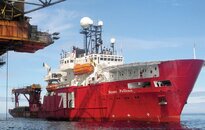Frank,
You already said that if DAN says evac, you are going to evac... The Immigration laws, boat policy on refunds and how many customers are pissed that their trip got cut short because you needed to evac a passenger is blurring your vision. To sum it all up, if its going to cost you an ass-ton of money, you are ok with playing doctor and making the determination that a persons DCS symptoms are resolved...because that is what you are talking about doing. That is your decision, but realize that it opens the door for litigation...and opens it WIDE.
You already said that if DAN says evac, you are going to evac... The Immigration laws, boat policy on refunds and how many customers are pissed that their trip got cut short because you needed to evac a passenger is blurring your vision. To sum it all up, if its going to cost you an ass-ton of money, you are ok with playing doctor and making the determination that a persons DCS symptoms are resolved...because that is what you are talking about doing. That is your decision, but realize that it opens the door for litigation...and opens it WIDE.




